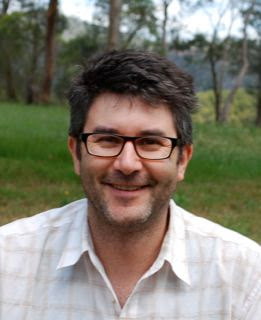The 3rd International Conference on Sciences and Social Sciences was held at Rajabhat Mahasarakham University, Maha Sarakham in Thailand. One of our colleagues from Phetchaburi Rajabhat University strongly recommended me to participate in this lively inter-disciplinary conference. Certainly, I took her idea and see this international conference as our first opportunity to discuss our project on mining and international development in Mekong with international academic community in Mekong region. Another reason to participate in this conference, the keynote speaker, Prof. Jira Hongladarom, is one of the most inspiring academics whom I have been following since my university time.
When I arrived Rajabhat Mahasakham University, I felt like home since the organiser team members and a number of Professors from the University warmly welcomed me anywhere I went, from the airport to Rajabhat campus. The conference is truly an international conference.... not only in its form, but also the quality of presenters and participants from over 10 countries!
The President of the University, Assoc.Prof. Somchai Wongkasem, welcomed us at the opening ceremony of the conference on 18 July 2013. Nothing was better than his warm and sincere welcoming speech to all delegates. His interpretation of the conference theme, research and development for sustainable life quality, is extremely interesting. I can 'feel' his enthusiasm in the promotion of academic regional development by education from early to life-long education.
The keynote speaker, Prof. Jira Hongladarom, started the conference conversation by discussing his ideas on development by focusing upon roles of various social stakeholders in South East Asia. More importantly, he firmly believes that universities must work with the real world concept, not a mere ivory-tower style, if the reality of development is expected. Sustainability! Sustainability! Sustainability! This term clearly is the heart of this conference.I recorded an interesting part of his and love to share it with you here.
An interesting aspect of the conference is the opening ceremony. I have been to many places in my life and time as an academic. However, the opening of this conference is truly unique!! The lively dance of ASEAN and sustainability development, which was well performed by students from the dramatic arts department from Rajabhat Mahasarakham University. Entertaining and Educative!!
Through out this conference, I met and discussed various aspects of development research with a number of delegates from Indiana State University, Arizona State University, Florida Atlantic University, the National University of Laos, Massey University, University of the Philippines, Mahasarakham University, and Vinh University from Vietnam. Again, we seem to focus on how to integrate our ideas and resources for the concept of research in sustainability and community development.
I presented 2 papers at the conference, focusing on mining and development and corporate social responsibility from mining companies in Mekong region. Our AusAID project was presented and well-received by the international participants. The focus on criticisms of mining in Asia was among management and social development academics from Vietnam and the USA. The concept of mining and development was not a brand new idea here. However, participants were very keen to share their experiences on this important issues. If you need to read a full paper on mining and development in Mekong from the conference, please click here. I also presented the second paper on CSR in Vietnam and Cambodia and the full paper can be accessed here.
Apart from the quality of international papers, I must admit that the integration of ideas from sciences and social sciences was the key features of this conference. Issues on management of resources, community and environmental development,and disaster management were discussed with sensation. Sustainability is an issue that interfaces with sciences, economics, culture as well as other social and environmental consequences of economic and technological activities. This conference clearly confirms that researchers need to integrate resources and ideas from different disciplines if we need to clearly understand complex issues of sustainability.
I would like to thank the organisers of the conference for this wonderful event and I look forward to participating in the next ICSSS conference.



















